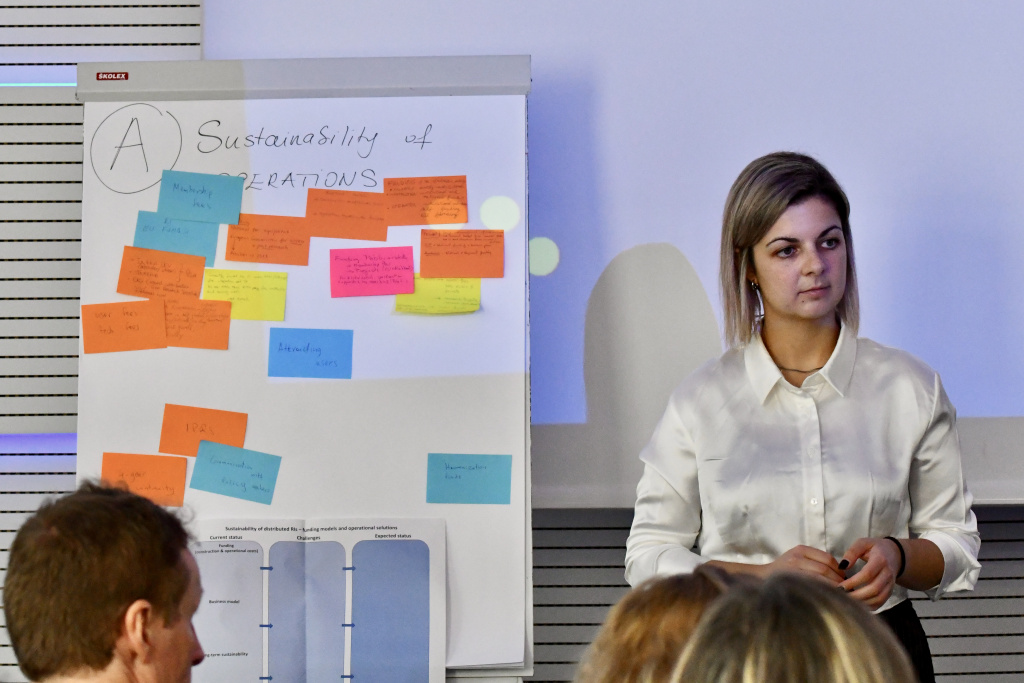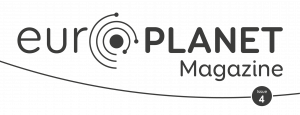Long-term Sustainability of Small and Mid-scale Distributed RI Projects
Liliana Avila Ospina and Patrick England (MOSBRI), Ana Helman (ESF), and Anita Heward and Nigel Mason (Europlanet) report on a side event session at the International Conference of Research Infrastructures (ICRI) 2022.
Read article in the fully formatted PDF of the Europlanet Magazine.
An important evolution over recent decades in the landscape of European research has been the increasing number of institutions, facilities and laboratories organising their operations and services through a Research Infrastructure (RI).
The European Commission (EC) has provided significant investment in RIs through its Research and Innovation Programme. A key driver in this is the provision of ‘transnational access’ whereby researchers are funded to use facilities in a different country from where they are based, thus promoting international scientific mobility. By pooling resources and data to provide easy access to state-of-the-art infrastructure, the EC aims to support the best science, connect national scientific communities and avoid duplication of effort.1
In wider society, the term ‘research infrastructure’ may bring to mind a single, big facility, such as CERN, or a network of large-scale infrastructure, such as the Square Kilometre Array (SKA), funded at a governmental level. However, many RIs are composed of multiple small or mid-scale facilities, owned by individual institutions, that are networked to provide coordinated access to users. More than 100 of these ‘distributed’ RI projects in all fields of science have been, or are currently being, funded by the EC, either as ‘starting’ or ‘advanced’ communities. Europlanet is a good example of this model of distributed RI and, since 2009, it has grown into an advanced community to support planetary science and includes over 40 laboratories and field sites around the world.
Building a Community
Distributed RIs, despite their proliferation, have to date been rather under-represented in strategic planning activities, such as in the European Strategy Forum on Research Infrastructures (ESFRI) Roadmaps. To address this, a consortium of distributed RIs and the European Science Foundation (ESF) initiated a programme in 2021 to try to bring together similar projects and provide them with a forum to raise their profile, identify common challenges and share best practice.
As a first step, a two-day virtual meeting was organised in April 2021.2 This proved very successful, attracting 130 participants. The outcomes included a recommendation to organise annual meetings to allow the distributed RI community to continue to interact.
As a follow-up, we organised a side-event at the International Conference on Research Infrastructures (ICRI) in Brno, Czech Republic.3 The event was organised by the ESF, Europlanet, and the EC-funded MOSBRI and VITALISE projects and attracted 50 in-person participants, with over 70 registering to take part online.
The goal of the workshop was to reflect on current challenges experienced by small and mid-scale distributed RIs and to explore options for developing and sustaining their operations. The workshop covered a wide range of fields of research supported by small- and mid-scale distributed RIs, with a focus on transnational access and the impact of RIs in Europe and around the world.

The workshop had an interactive format and was organised in three sessions. In the first part, representatives of 10 RI projects presented their plans for sustainability. This was followed by a presentation by Anne Charlotte Joubert, Coordinator of the ENRIICT project, who shared best practice for developing relationships between RIs and industry. In the second session, the on-site participants were split into three thematic groups and a further co-creation group was organised for online attendees. Group 1 discussed sustainability of distributed RIs, including funding models and operational solutions. Talking points included research and innovation, harmonisation of standards, Open Science, education and networking activities. Group 2 focused on sustainability of services, including transnational access and models for physical, remote, and virtual access. Group 3 discussed visibility and impact of RI activities, including catalogues of services and outreach activities to all types of users and the public. The online group discussed a range of aspects relating to sustainability, including some of the challenges for RIs in choosing and setting up a legal entity. In the final session, rapporteurs presented the conclusions of the thematic discussion groups, and the issues raised were analysed and commented on by panellists.
The main conclusions of the workshop were:
- RIs play a critical role in developing leading international research.
- There are significant benefits in enabling distributed RIs to work together in the development of different sustainability models.
- Transnational access is a unique programme that provides Europe with important scientific advantages. However, EC support remains critical as funding through national sources is difficult, and in some cases not permitted by national laws.
- Creating a legal entity can pose major administrative challenges to researchers, especially in small RI communities.
- Engaging in projects with the private sector is not easy. Often, there is no investment when short-term revenue is not guaranteed.
- There is a risk that the ‘top-down’ trend in current Horizon Europe calls towards funding large-scale initiatives and thematic clusters of RIs may mean that valuable smaller communities are lost.
- The provision of remote access by RIs may be useful for ‘automatised’ services but is less applicable for tailored, more complex, experimental set-ups.
- Demonstrating user support is vital for long-term sustainability vis-à-vis funders.
- Effective outreach activities need to be targeted at specific stakeholder groups, but this requires dedicated resources and staff time. Nonetheless, these activities can help RIs find funders other than the EC, e.g. national funding agencies, regional innovation clusters, etc.
Future meetings of distributed RIs are planned, with the next taking place at the Europlanet Research Infrastructure Meeting (ERIM) from 19-23 June 2023 in Bratislava.
For more information about the event and follow-up activities, contact Liliana Avila-Ospina (Liliana.avila-ospina@pasteur.fr) and Anita Heward (aheward@europlanet-society.org).
References
1. Research infrastructures make science happen. EC Publications. DOI: http://doi.org/10.2777/446084
2. https://www.esf.org/news-media/news-press-releases/article/workshop/


